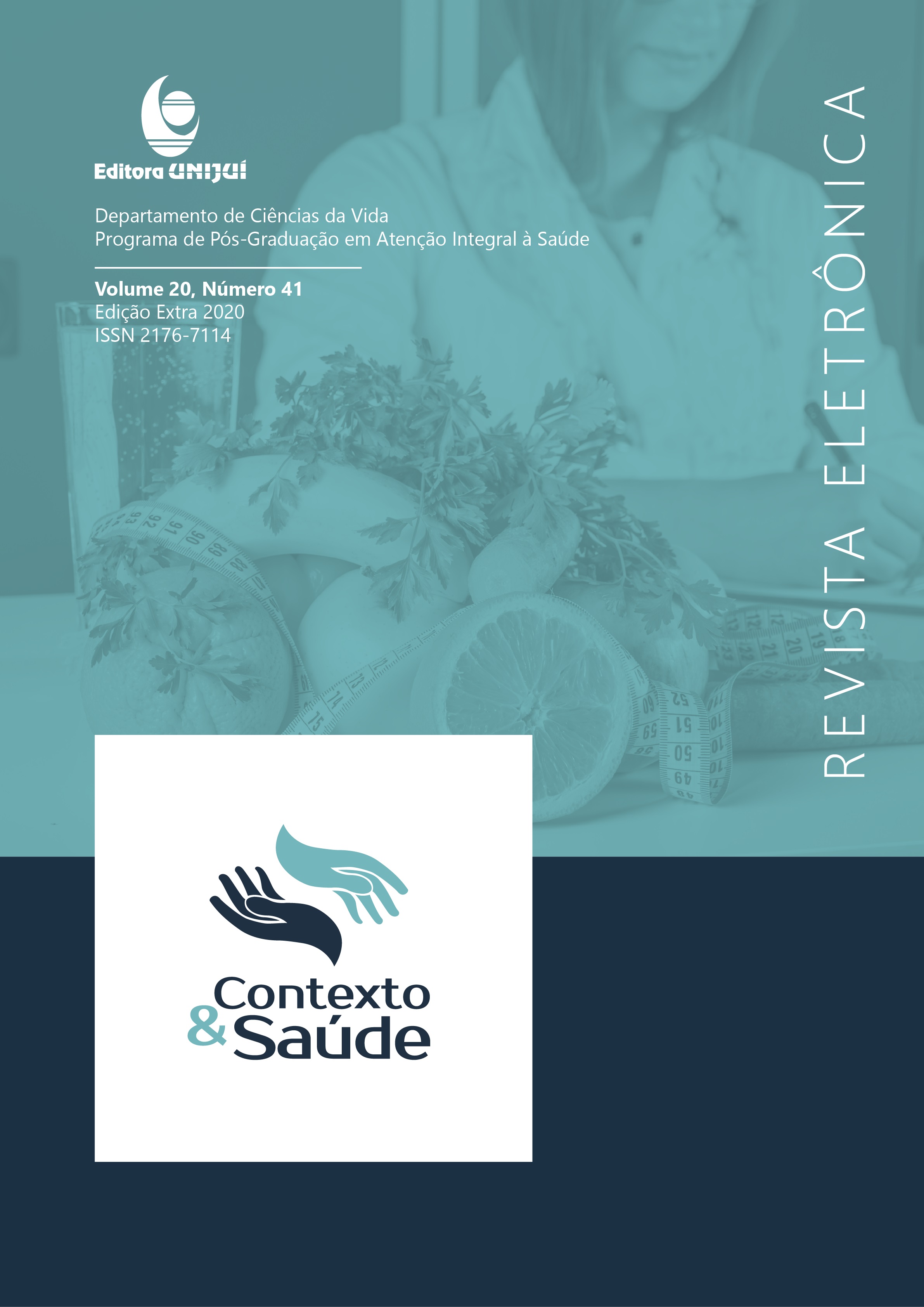MARCADOR INFLAMATÓRIO, CONSUMO DE ENERGIA, FRUTAS, LEGUMES E VERDURAS EM IDOSOS
DOI:
https://doi.org/10.21527/2176-7114.2020.41.54-61Keywords:
Aging, Immune system, DietAbstract
The objective of this study was to evaluate the association of inflammatory marker (PCRus) with the consumption of energy, fruits, legumes and vegetables in the elderly. The is a quantitative, descriptive and cross-sectional research, carried out in the city of Palmeira das Missões, Brazil, with the elderly aged over 60 years, totaling a sample of 43 elderly people. The sociodemographic information was obtained through an interview, held in the home of each elderly person, where they were instructed to attend with a 12-hour fasting, on scheduled day and time, a clinical analysis laboratory in the city, for collection of blood samples and anthropometric data. The present study showed higher frequency for no daily consumption of fruits (51.2%) and legumes and vegetables (58.1%), daily consumption of fruits, legumes and vegetables (FLV) below 3 servings (88.4%) and ultra-sensitive C-Reactive Protein over 0.3 mg/dl (51.2 %). In relation to sociodemographic data, according to the PCRus values, there was a statistically significant association with living without a partner (p=0.033). The energy consumption was low, as well as the mean consumption of fruits was below one serving per day (0.58 serving/day) and of legumes and vegetables (0.51 serving/day). The same low consumption occurred when grouped in FLV, which was below 3 servings per day with an average of 1.12 servings/day. Most of the elderly presented values of PCRus inflammatory marker above 0.3 mg/dl. There was a statistically significant relation between PCRus only with the marital situation of living without a partner.
Downloads
Published
How to Cite
Issue
Section
License
By publishing in Revista Contexto & Saúde, authors agree to the following terms:
The works are licensed under the Creative Commons Atribuição 4.0 Internacional (CC BY 4.0) license, which allows:
Share — to copy and redistribute the material in any medium or format;
Adapt — to remix, transform, and build upon the material for any purpose, including commercial.
These permissions are irrevocable, provided that the following terms are respected:
Attribution — authors must be properly credited, with a link to the license and indication of any changes made.
No additional restrictions — no legal or technological measures may be applied that restrict the use permitted by the license.
Notes:
The license does not apply to elements in the public domain or covered by legal exceptions.
The license does not grant all rights necessary for specific uses (e.g., image rights, privacy, or moral rights).
The journal is not responsible for opinions expressed in the articles, which are the sole responsibility of the authors. The Editor, with the support of the Editorial Board, reserves the right to suggest or request modifications when necessary.
Only original scientific articles presenting research results of interest that have not been published or simultaneously submitted to another journal with the same objective will be accepted.
Mentions of trademarks or specific products are intended solely for identification purposes, without any promotional association by the authors or the journal.
License Agreement (for articles published from September 2025): Authors retain copyright over their article and grant Revista Contexto & Saúde the right of first publication.

